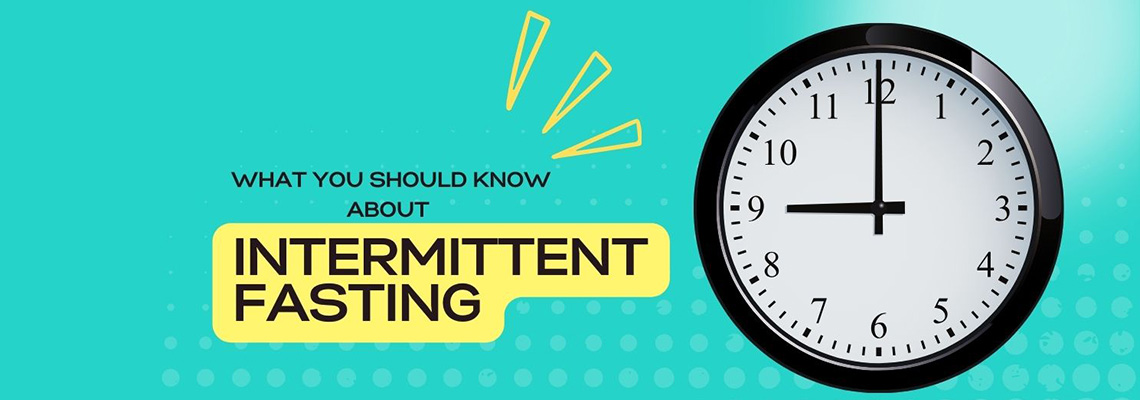01
2024
What you should know about intermittent fasting

Indians have fasted for years, and it is meant to detoxify the body. For many Indians fasting (IF) has a religious connotation as well. However, today all over the world it’s been adopted as a lifestyle, for many and it's proving to be a panacea for weight loss.
The recent flurry of articles linking Intermittent fasting as the cause of death in people with cardiovascular disease has taken centre stage in talks and conversations. Is this true?
Well, here are some facts and truths, and you can make up your mind.
Intermittent fasting, if done right can work. What does ‘if done right mean?’
1. Eating according to the circadian rhythm (sleep and wake cycles)
We have a circadian rhythm or in Macrobiotics we follow the Chinese body clock. When your eating window coincides with these times, not only are your organs nourished, but the body is also functioning at its optimum to absorb nutrients from your food.
What are people doing wrong?
People today mess this up, by avoiding breakfast altogether, when the stomach's peak activity time is 7 to 9 am and 9 – 11 am the spleen time, when nutrients are absorbed. Hence depriving those people of nutrients who avoid breakfast during their fasting window.
2. Drinking caffeine in the fasting window
In the fasting window, one should not be drinking caffeinated beverages, instead focus on herbal teas, some lime juice or water. The real effects of fasting take place after the 14-hour fasting window, i.e., autophagy {removal of damaged and dysfunctional cells}, to get the benefits of IF.
What are people doing wrong?
People are damaging this process by having a cup of coffee, the hydrochloric acid which remains in the digestive system due to the fasting window being long, starts creating acidity and in some cases gastritis. Coffee also activates the mammalian target of the rapamycin (mTOR) pathway, which is known to inhibit autophagy.
3. Eating clean during the eating windows
Fasting if done for weight loss, or detoxification, must include clean eating. What do I mean by this? Eating nutrient-dense foods, that will nourish you. If your calorie intake is supposed to be reduced, then focusing on the right macronutrients is very important.
What are people doing wrong?
I find that because intermittent fasting reduces you to 2 meals and 1 snack in a 14-16 hour fasting cycle, people feel they can eat what they want. Due to the deprivation of food, this makes them eat junk many times, i.e., foods that will not nourish them. So, people get nutrient deficient.
4. Eating fewer calories to lose weight
The whole purpose of following an intermittent fasting protocol is to eat fewer calories, if the desired goal is to lose weight.
What are people doing wrong?
Instead people are consuming more calories on an intermittent fasting protocol, again because they are deprived and they feel there should be some kind of reward for not eating for longer durations. If you are consuming more calories in 2 meals and a snack, than you would if you were eating normally, then it defeats the purpose of intermittent fasting for weight loss.
5. Intermittent fasting when you have an eating disorder
I have seen many women and men take up IF when they are already bulimic or anorexic. For those with a history of eating disorders, this becomes jumping on to another eating disorder.
What are people doing wrong?
Trying to engage in IF for those with an eating disorder, is never the answer. As people with an eating disorder need to eat to nourish themselves of deprived nutrients that they do not get from having an eating disorder. People I consult for anorexia and bulimia, want to be healthy and follow every diet protocol to further keep their weight down.
Intermittent fasting for those who have diabetes
It all depends on how severe your diabetes is. Getting screened to first understand if you have diabetes or are at risk for cardiovascular disease is important. Here are some conditions diabetes-related in which I would not recommend IF:
- If you are insulin-dependent e.g., in type 1 diabetes (or type 2 with an insulin dependency)
- If you tend to suffer from hypoglycemia
- If you have type 2 diabetes, work with your practitioner on shorter fasting windows, and adjust medications accordingly.
The link between Intermittent fasting and cardiovascular disease
The body produces counter-regulatory hormones like catecholamine, adrenaline and noradrenaline. These sometimes can increase one's pulse rate and also impact blood pressure, proving to be damaging to the heart. Also, those people on blood pressure medication and diuretics {a lot of those who have cardiovascular disease are on these} can be prone to an imbalance in sodium and potassium.
I would advise working with your doctor and health practitioner if you'd like to explore IF.
Who should reconsider Intermittent fasting as a protocol? And work with their doctors/healthcare practitioners -
- Those over 65 with comorbidities
- Women breastfeeding or pregnant
- People who have type 1 diabetes
- People suffering from low blood pressure
- People with Irritable Bowel Disease/sometimes even those who have IBS (Irritable Bowel Syndrome)
- People suffering with liver, kidney or heart disease
- People on blood thinners, BP medicines, or any medications that control blood sugar
In conclusion, while it is a personal choice to engage in intermittent fasting, please do not do it if you have any health condition, first consult your medical practitioner.
